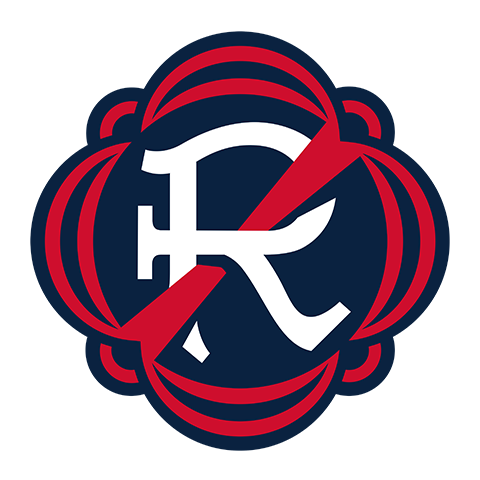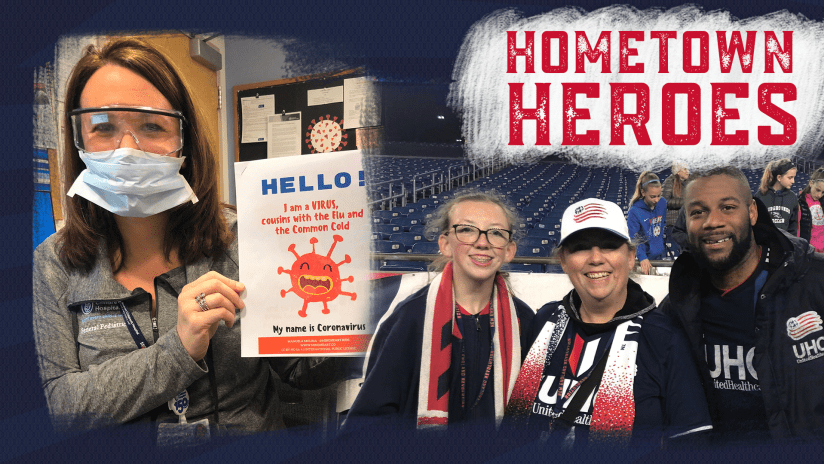FOXBOROUGH, Mass. – Skye Bergan and Lisa Clarke are both devoted Season Members who, like the rest of us, are missing their New England Revolution family and anxiously awaiting the day we can all be together again at Gillette Stadium.
But even in the midst of the COVID-19 pandemic that has halted the Major League Soccer season and forced us all to keep our distance, the Revs still provide something of an escape.
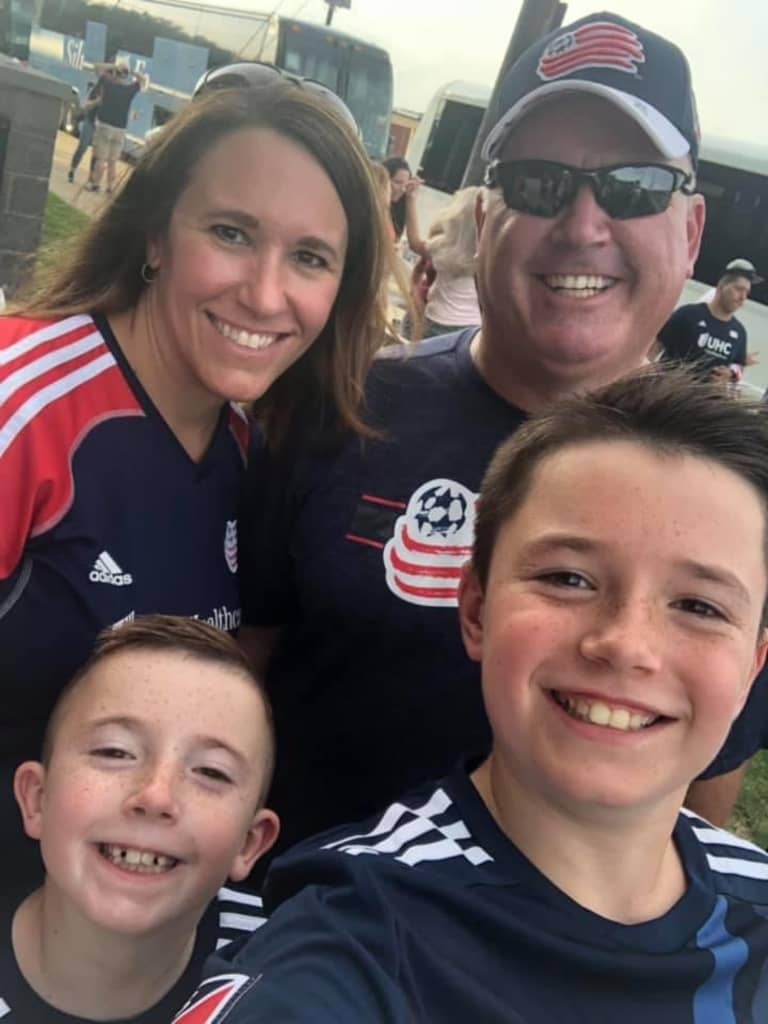
“That’s all we talk about, all the time,” said Clarke, whose sons Jack (12) and Ryan (9) are super fans. “That’s our happy place, just to sit there and watch our guys, and (the players) wave to the kids because they’re all best buddies … The social media and everything that we can watch from afar right now is helpful for the kids to still feel connected.”
Bergan moved to Massachusetts two years ago from Hawaii and immediately became a Season Member, attending games with her two daughters, Lillian (14) and Julia (13).
“Last year was just my oldest daughter and I that were season ticket holders, and this year I got my youngest daughter into it,” said Bergan. “We don’t have professional sports at all in Hawaii, so to be here when we moved here two years ago and really got the girls involved in professional sports, they’re just blown away.
“We’re missing our sports and our Revs. We’re so excited to see when we can get back into that environment and see our players play.”
Often it’s those players who are seen as the “heroes” that youngsters are inspired to emulate, but in reality it’s Bergan and Clarke who are the true heroes – registered nurses working on the frontlines of the COVID-19 pandemic and keeping their fellow New Englanders safe and loved at a time of need.
Bergan has been in nursing for 16 years, joining the UMass system upon her arrival in Massachusetts two years ago and currently working at UMass Memorial Medical Center University Campus, a 640-bed facility located in Worcester.
It’s the personal relationships – both with the patients and their families – that drew Bergan to nursing.
“I really think nursing is a calling, and that’s why I got into it,” she said. “It’s not always to help people get better, but sometimes it’s just to make them comfortable. That’s really what I try to do every day.”
Clarke has been a nurse for 22 years, the past seven of which she has spent at Boston Children’s Hospital, largely considered the top pediatric hospital in the country.
“Ever since I switched to pediatrics it’s sort of changed my views on nursing, because you’re kind of like their lifeline,” Clarke said. “They appreciate every little thing you do for them, even if it’s just hanging out playing a game. I’m honored to be a nurse. Always have been.”
That honor has taken on a different shape in recent months as COVID-19 has swept across the world, changing the way healthcare professionals approach everything they do. Safety is always the top priority at hospitals, but precautions have reached an entirely new level under the circumstances.
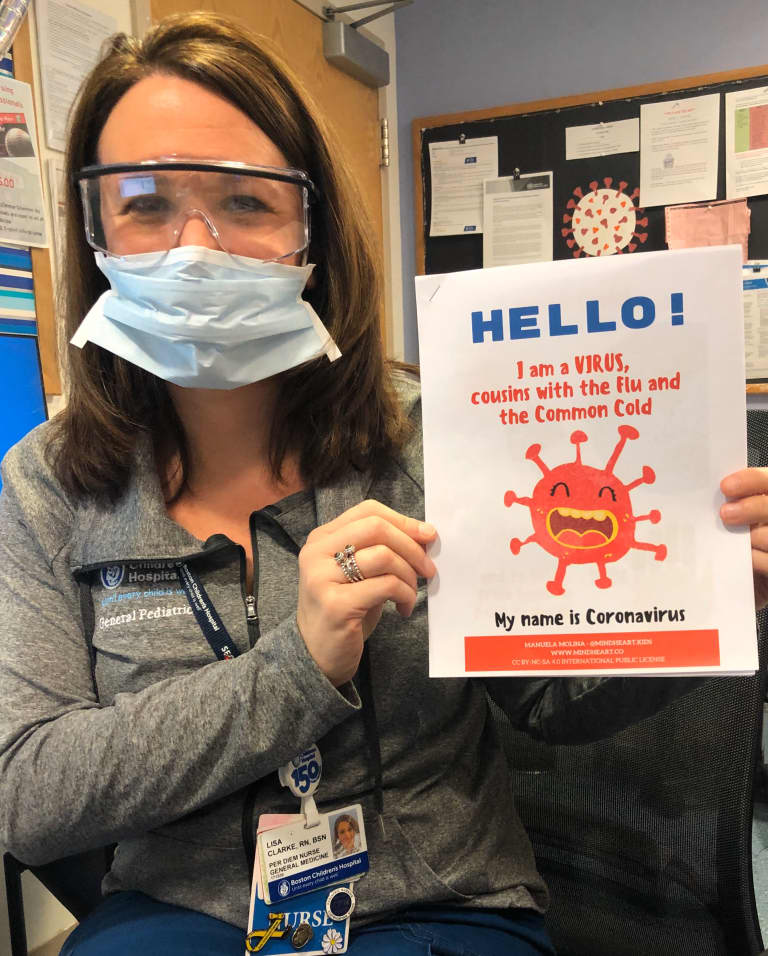
Both Bergan and Clarke treat patients with COVID-19 on a daily basis – “It’s here in full force,” Clarke said of Boston Children’s – and as a result spend the entirety of their 12-hour shifts decked out in heavy PPE (Personal Protective Equipment), some of which was provided by the Kraft family.
It can turn what was once the simplest of interactions into much more of a production.
“Your shifts are much longer, because to take care of these patients takes so much longer,” said Clarke. “I wouldn’t say a lot has changed other than they’re just exhausting 12-hour shifts. The PPE that we wear is pretty intense, so when you’re thinking about just going in to hand them a glass of water, that now takes 15 minutes to put on everything. So little changes like that, but it has to happen to keep us all safe.”
For Bergan, who works nights from 7 p.m. to 7 a.m., adding her commute to a 12-hour shift makes for a 14-15 hour day, which she said can feel much longer simply because of the gravity of the situation.
“The last five weeks have been more stressful,” said Bergan. “We’ve limited family contact in the rooms, but we’ve used technology. I was Facetiming with a family for 45 minutes the other day so they could see their loved one, and that’s definitely a change from what we’re used to.
“We all have to take our time and make sure that the masks are on correctly, and our gowns are tied correctly, and our goggles are on, because it spreads so easily that it does take a couple extra minutes to make sure we can get in there safely for everybody. And that can be frustrating, because nursing just wants to get in the room and help the patients right away.”
That daily stress can pile up, so the sense of togetherness inside the medical community has been paramount, not just as healthcare professionals have worked together to keep their patients as safe and comfortable as possible, but also as they’ve supported each other through an unprecedented time.
“It’s definitely brought us all a lot closer. We depend on each other way more than we ever used to,” said Clarke. “We need each other not only at work, but after work when we need to vent and talk about this crazy time. This is stuff we’ve never seen before – any of us – so we’re definitely one big team now, way more than we ever used to be.”
That support has come from within the medical community, but also from society as a whole. Messages of thanks pour into the hospitals every day in the form of video calls, greeting cards, or food. In many cities, residents have taken to applauding healthcare workers at a designated time each evening.
Every message is appreciated, Clarke said, and nothing goes unnoticed.
“I think we probably cry every shift,” she said. “When you do walk in that door, you’re like, ‘Okay, I got this. There’s people that need me and people supporting me.’”
Bergan was on duty two weeks ago when the Worcester Police and Fire departments did a drive by at the hospital to show their support for the patients and healthcare workers, and she said seeing the community come together provides all the inspiration they need to press on.
“It was just so special,” Bergan said. “I think every staff member there just had tears in their eyes seeing the community come together for all the healthcare professionals. It was really remarkable to see … It’s really brought community together.”
In Hawaiian culture, ‘ohana means “family.” It can encompass not just your immediate relatives, but cousins, friends, and neighbors – anyone you consider part of that community.
For Bergan, ‘ohana encapsulates both the healthcare community and the Revs community.
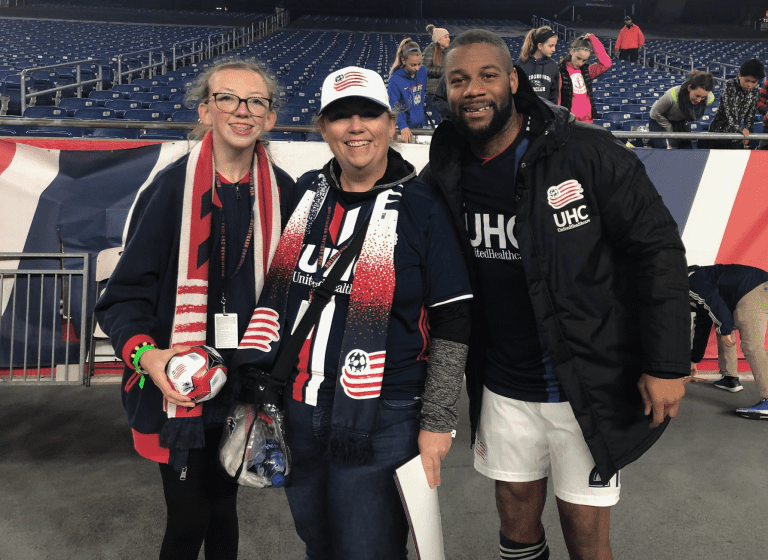
“I think nursing and healthcare in general is all about an ‘ohana,” she said. “I’ve been to a lot of professional sports, but Revs games really have a family environment, and that’s, I think, probably why a lot of healthcare professionals love the Revs games, because it is like a family.”
Bergan and Clarke are far from the only members of the Revolution family working as nurses – Clarke said there’s probably a dozen or so just at Boston Children’s – and it’s imperative that we recognize the work they’re doing particularly now, during National Nurses Week which runs from May 6-12.
Being part of that family – not just the nursing family, but a Revolution nursing family – is a source of pride for Bergan and Clarke, who love to combine their two biggest passions: the Revs, and helping people.
“I love my Revs community,” said Clarke. “We always have our Revs gear on and we’re always high-fiving in the hallways. It’s a community of Revs fans, but we’re also a community of nurses that support the Revs, and when they come to visit, we’re the first ones standing there waving, waiting to see everybody.”
“I’m very proud to be part of the Revs organization, and going to those games and having a lot of healthcare professionals there, as well,” added Bergan. “It really is an awesome thing to be a part of.”
